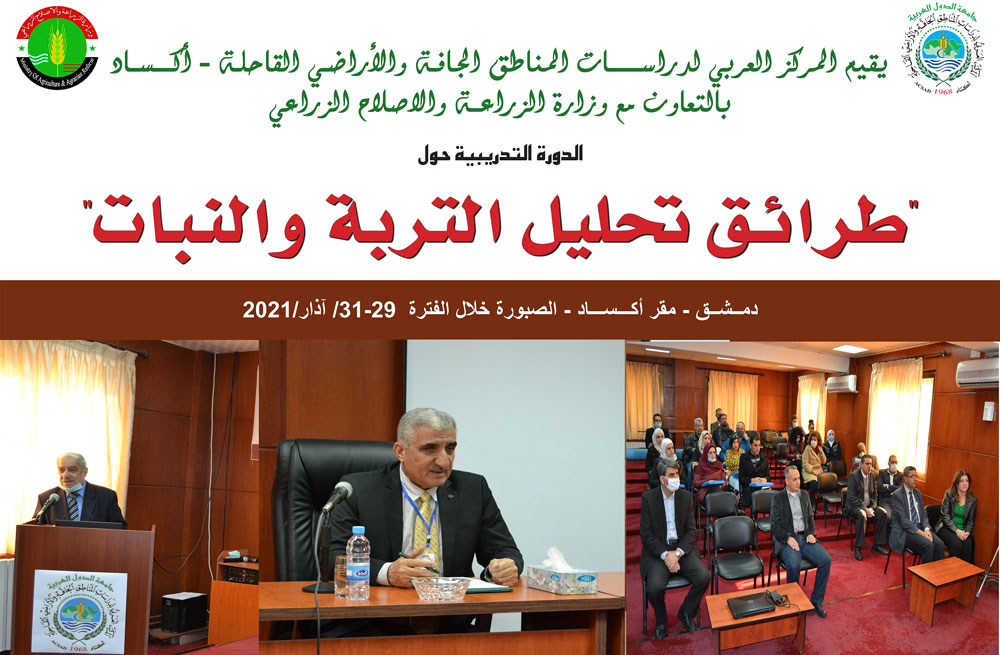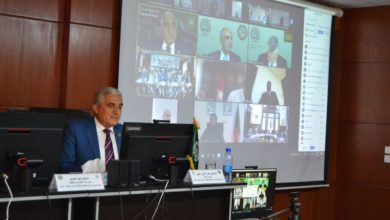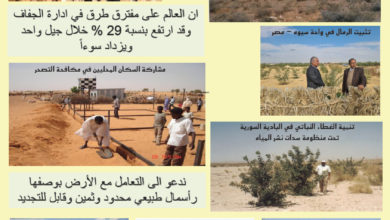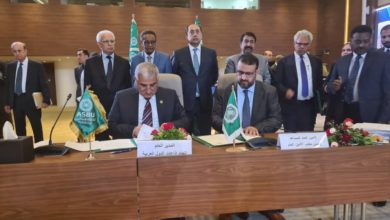Methods of Soil and Plant Analysis/ Training course in ACSAD
Today, at the headquarters of the Arab Center for the Studies of Arid Zones and Dryland (ACSAD) in Damascus, the activities of the training course in the field of ” Methods of Soil and Plant Analysis” started for the benefit of 10 agricultural engineers from the Ministry of Agriculture and Agrarian Reform’s staff in the Syrian Arab Republic and the General Commission for the Agricultural Scientific Research to introduce them for the best methods and technologies used in the laboratory analysis for soil and plant; in the presence a great turnout of Syrian and Arab experts.
In a speech at the opening of the course, His Excellency, the Director-General of ACSAD Organization, Dr. Nasr Edin Obaid, confirmed that ACSAD’s interest in organizing this course came from its keenness, as it was an Arab house of experience, to accomplish its scientific tasks and achieve it honestly since its establishment till now. It also sought to achieve the Arabian developmental objects as an Arabian Organization works to serve and develop the Arab agricultural sector.
He said that ACSAD had organized many training courses to raise the competence and build Arab and Syrian human capacities in several areas of plant and animal. ACSAD paid particular attention to soil and water through all its work phases, from soil fertility classification, analysis, and assessment, preserving it from erosion, and preserving water from pollution and depletion.
Dr. Obaid clarified that all the worker in the Arab agriculture sector knew that most of the Arab world lands were threatened by desertification, and as a natural result of soil poverty and desertification, the natural stability situation and the land uses for agricultural development declined; the food gap widened in the Arab countries. He noted that the surveys’ preliminary results indicated that the total degraded areas in the Arab region reached 658 million hectares by 2007, and it reached 845 million hectares by 2010, so that the areas used in cultivation, pasture, and forest were decreased.
He, therefore, said that the Arab Center Organization (ACSAD) paid great attention to studying the soil types and their classification throughout the Arab world; plant and water analysis, drawing the classificational maps to identify the appropriate crops for both soils the poor and fertile one, trying to reach the logical solutions for all agricultural problems. It also focused on soil analysis and its classification, its fertility identification, as it was the start point to determine the soil needs and the quality of the agricultural action that could be achieved there. Moreover, it developed its laboratories to contain a unit to analyze soil, water, and plant inside the laboratories department and conducted all the analysis related to land classification, soil fertility assessment by using the newest available methods and devices globally.
He pointed out that there was no doubt that the precise classification of the different types of soils in our Arab world and the determination of their essential needs; then identifying its usage possibility and achieving the optimal benefit with high productive revenue that regarded as the most important fundamentals to develop the agricultural sector and achieve the requisite economic return to bridge the food gap. Thus, this training course gained particular importance in improving and identifying an obvious scientific strategy for agricultural sector development; transfer and application of the benefit in the farmers` fields, adapted to the various regions` requisite needs span all over Arab countries.
Then, His Excellency the Director-General concluded his speech, confirming that to accomplish this training course its goals an integrated program on the laboratory methods to analyze soil and plant had prepared by using all the available techniques in that field; because our fundamental goal was to provide all ACSAD’s expertise to the brotherly trainees.
The training course goes on for three days. Its practical, scientific, and training program includes several axes: an introduction to the biotechnologies and laboratories in ACSAD, the phenotypic characteristics of soil and its field estimation methods, the methods of analyzing the chemical soil ( ph, electrical conductivity, Cations, Ions, Nitrogen, Phosphorus, Potassium, and organic matter), and the estimation of nitrogen, organic matter, calcium carbonate, and phosphorus in the soil.
It also includes axes concerning the importance of the nutrients and heavy minerals in the soil and plant, estimation methods for some chemical properties of plant (the content of major and minor elements, chlorophyll, and the minor elements), methods of soil sampling and processing for analysis, estimation of soil physical properties (moisture, density, porosity, field capacity, mechanical analysis), digestion of soil and plant samples, preparation of standard solutions.
A specialized and high qualified group conducts the scientific, practical, and applied training from the Arab Center ACSAD’s experts at both the Arab and international levels.




